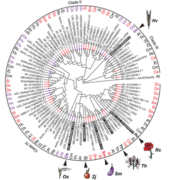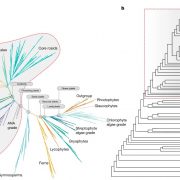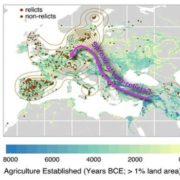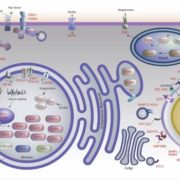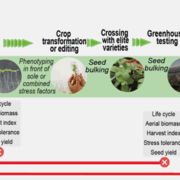The evolutionary advantage of losing genes after endosymbiosis (Genome Biol)
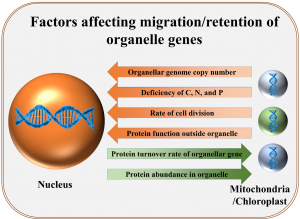 The emergence of eukaryotes is associated with endosymbiosis of mitochondria and chloroplast. In the course of evolution, most of the genes from these organelles have either migrated to the nucleus or been lost. But why have a small but significant number of genes remained in these organelle genomes? A recent analysis by Steven Kelly sheds light on possible reasons behind this. The study emphasizes that since organelles are present in large numbers in each cell, a relatively large amount of energy (ATP) is required to replicate their DNA. On the other hand, it is less expensive for a cell to maintain a gene in the nucleus and export the encoded protein to the organelles, especially if the protein is present in low abundance. The genes that are retained in these organelles are mainly the ones that encode proteins present at high levels, making their production within the organelles more economical. Other factors favoring gene migration to the nucleus include: additional functions of the gene product outside the organelle, nutritional deficiency of carbon, nitrogen, and phosphorus (constituents of DNA), and a low rate of protein turnover. (Summary and modified image by Kamal Kumar Malukani, @KamalMalukani). Genome Biol. 10.1186/s13059-021-02567-w
The emergence of eukaryotes is associated with endosymbiosis of mitochondria and chloroplast. In the course of evolution, most of the genes from these organelles have either migrated to the nucleus or been lost. But why have a small but significant number of genes remained in these organelle genomes? A recent analysis by Steven Kelly sheds light on possible reasons behind this. The study emphasizes that since organelles are present in large numbers in each cell, a relatively large amount of energy (ATP) is required to replicate their DNA. On the other hand, it is less expensive for a cell to maintain a gene in the nucleus and export the encoded protein to the organelles, especially if the protein is present in low abundance. The genes that are retained in these organelles are mainly the ones that encode proteins present at high levels, making their production within the organelles more economical. Other factors favoring gene migration to the nucleus include: additional functions of the gene product outside the organelle, nutritional deficiency of carbon, nitrogen, and phosphorus (constituents of DNA), and a low rate of protein turnover. (Summary and modified image by Kamal Kumar Malukani, @KamalMalukani). Genome Biol. 10.1186/s13059-021-02567-w


